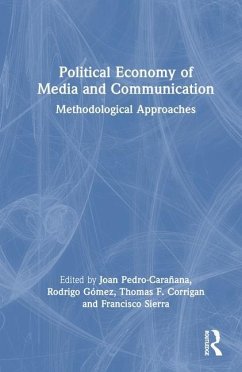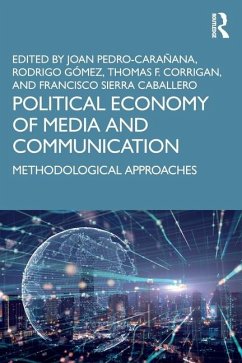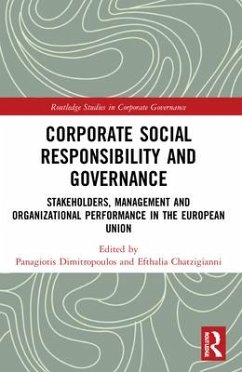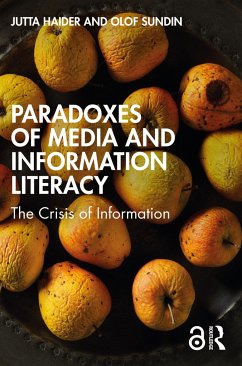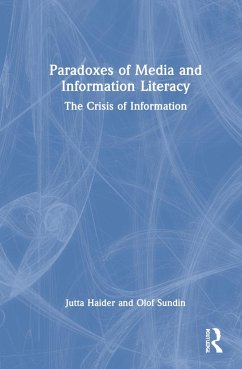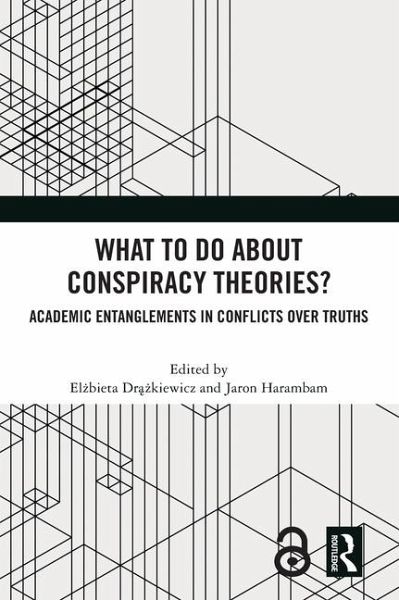
What To Do About Conspiracy Theories?
Academic Entanglements in Conflicts Over Truths
Herausgegeben: Drazkiewicz, Elzbieta; Harambam, Jaron
Versandkostenfrei!
Versandfertig in 6-10 Tagen
154,99 €
inkl. MwSt.
Weitere Ausgaben:

PAYBACK Punkte
77 °P sammeln!
Increasingly social activists, journalists and policy makers have expressed concern over the proliferation of conspiracy theories in the public space. There is a growing fear of their impact on social cohesion and democracy, their power to erode trust in state institutions and science. These concerns often come with an expectation that it is the responsibility of academics to engage with conspiracy beliefs by countering them. But should they?In this book, contributors show that like everything that relates to conspiracy theories, even the answer to this question is not straightforward and can ...
Increasingly social activists, journalists and policy makers have expressed concern over the proliferation of conspiracy theories in the public space. There is a growing fear of their impact on social cohesion and democracy, their power to erode trust in state institutions and science. These concerns often come with an expectation that it is the responsibility of academics to engage with conspiracy beliefs by countering them. But should they?
In this book, contributors show that like everything that relates to conspiracy theories, even the answer to this question is not straightforward and can vary across disciplines and schools, can be influenced by disciplinary ethical codes of conduct, research methodologies, and specific approaches to conspiracy theories. Foregrounding a variety of approaches, from across disciplines (psychology, anthropology, sociology and media studies), academic seniority (from young scholars to full professors), and countries (USA, Ireland, UK,The Netherlands, Sweden, and Greece), the chapters in this book are in deep conversation with each other, offering multiple alternative takes on the issue of what should academics do with conspiracy theories. Together, the book embodies several bold and compelling provocations to dealing differently with conspiracy theories.
This timely volume introduces perspectives of scholars representing media studies, anthropology, psychology and sociology and discusses case studies concerning politics, health, environment and security. It will be a key resource for researchers, scholars and practitioners engaged in these fields and will also appeal to anyone interested in conspiracy theories and other related phenomena such as disinformation or fake news. This book was originally published as a special issue of the Journal for Cultural Research.
The Open Access version of this book, available at https://www.taylorfrancis.com/books/oa-edit/10.4324/9781032647463/conspiracy-theories-el%C5%BCbieta-dr%C4%85%C5%BCkiewicz-jaron-harambam?context=ubx&refId=34db6a37-3391-401b-bef8-10dd2351c582 has been made available under a Creative Commons [Attribution- Non Commercial- No Derivatives (CC- BY- NC- ND)] 4.0 International license. A version of the open access title is also available on the OAPEN platform: https://library.oapen.org/handle/20.500.12657/88254.
In this book, contributors show that like everything that relates to conspiracy theories, even the answer to this question is not straightforward and can vary across disciplines and schools, can be influenced by disciplinary ethical codes of conduct, research methodologies, and specific approaches to conspiracy theories. Foregrounding a variety of approaches, from across disciplines (psychology, anthropology, sociology and media studies), academic seniority (from young scholars to full professors), and countries (USA, Ireland, UK,The Netherlands, Sweden, and Greece), the chapters in this book are in deep conversation with each other, offering multiple alternative takes on the issue of what should academics do with conspiracy theories. Together, the book embodies several bold and compelling provocations to dealing differently with conspiracy theories.
This timely volume introduces perspectives of scholars representing media studies, anthropology, psychology and sociology and discusses case studies concerning politics, health, environment and security. It will be a key resource for researchers, scholars and practitioners engaged in these fields and will also appeal to anyone interested in conspiracy theories and other related phenomena such as disinformation or fake news. This book was originally published as a special issue of the Journal for Cultural Research.
The Open Access version of this book, available at https://www.taylorfrancis.com/books/oa-edit/10.4324/9781032647463/conspiracy-theories-el%C5%BCbieta-dr%C4%85%C5%BCkiewicz-jaron-harambam?context=ubx&refId=34db6a37-3391-401b-bef8-10dd2351c582 has been made available under a Creative Commons [Attribution- Non Commercial- No Derivatives (CC- BY- NC- ND)] 4.0 International license. A version of the open access title is also available on the OAPEN platform: https://library.oapen.org/handle/20.500.12657/88254.






